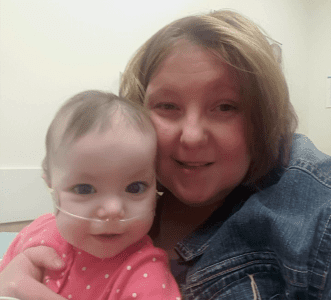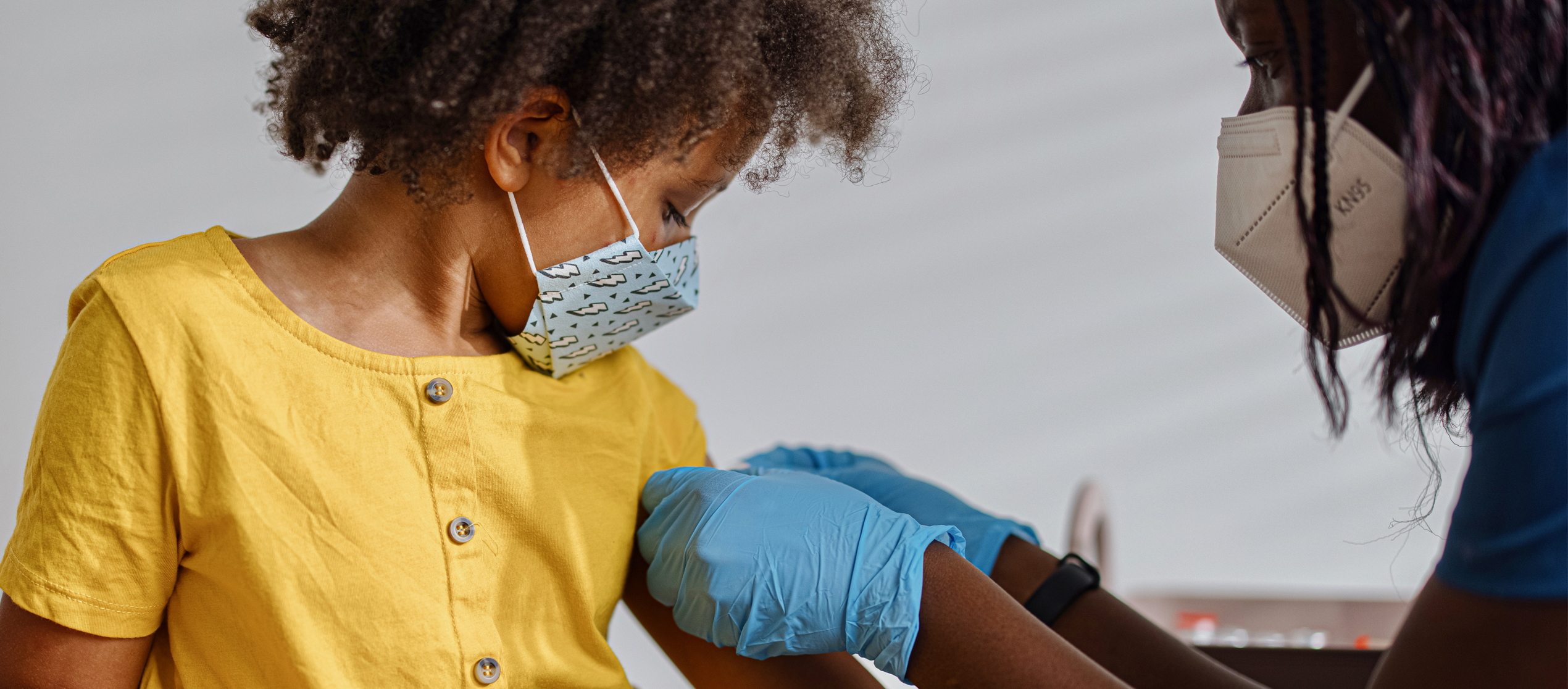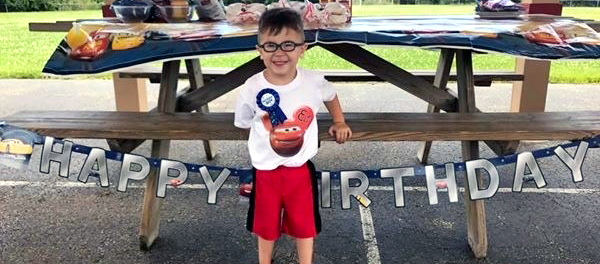My 15-month-old daughter, McKenna, has my eyes, my hair, and smile. She also has the same deletion syndrome as I do: 22q11.2, or 22q for short. Also called DiGeorge syndrome, this condition is caused by the deletion of a piece of chromosome 22. The condition affects everyone differently, but some common features can include cleft palate, short stature, heart defects, and autoimmune disorders.
What makes our story interesting is that I didn’t find out that I had this condition until after McKenna was born.
How it all began
I had a normal pregnancy and delivery with McKenna. During her routine health check following delivery, doctors heard a heart murmur, but weren’t concerned. When we got up to our postpartum room, I gave her a bottle. She kept choking every time she would suck – it would come up through her nose. We were told that this can be normal. But I grew more concerned. Then I noticed that McKenna kept shaking. The staff said that this can happen as newborns are adjusting to their new environment. My mommy instincts started to kick in. Her whole body was shaking and it just didn’t feel right to me.
The next day we were set to go home and a pediatrician came in to do one more check of her. That’s when he heard her heart murmur and called Cincinnati Children’s to assess her. They performed an echo and found multiple heart issues: truncus arteriosis, patent ductus arteriosis, interrupted aortic arch and ventricular septal defect. She was immediately transferred to Cincinnati Children’s Heart Institute.
Soon after she arrived, she had a seizure. They tested her calcium and determined that it had been depleted. That’s why she was shaking after birth. She had low calcium and we had been giving her soy formula, which depleted it further. Initially we opted to give her soy formula because our older daughter was really colicky and we were trying to avoid that situation again.
McKenna needed open-heart surgery
At eight days old, McKenna needed open-heart surgery to correct her multiple defects. She had truncal valve repair, interrupted aortic arch repair, placement of an RV to PA conduit, PDA ligation, ASD closure, and VSD closure. Needless to say, it took a while! During her surgery, the surgeon noticed that she didn’t have a thymus, which is the gland located behind the sternum and between the lungs and plays a large role in the immune system. We also learned that she had small facial features.
How genetics played a role
Following surgery the genetics team sat down with us and asked a bunch of questions. They wondered if anyone in our families had similar characteristics or diagnoses to McKenna’s. This is when we learned that she had DiGeorge syndrome. We had a lot of questions for the team. How long will she be expected to live? What will daily life be like? What caused this? We found out that DiGeorge syndrome is different for everyone.
They also explained that this condition is only 7% inherited. The rest happens spontaneously. We agreed to have further genetic testing to understand our family’s history and risk. When the results came back, our genetic counselor informed me that I also had the condition.
Connecting the dots
I had some dark days following this news. I was the true reason that McKenna is struggling. But it also connected some dots for me. I too struggled as a baby and have features that I’ve since learned can be typical of those with 22q. For instance, I had trouble with feeding as a baby. Liquids would come through my nose. I had nasal polyps, a submucus cleft palate and small facial features. But overall, I had a typical childhood. It didn’t impact me as much as it has McKenna. In fact, our geneticist was shocked that I have the condition at all.
The complications continued
Meanwhile, McKenna continued to have complications. Around 25 days old, she needed another open-heart surgery. The conduit that was originally placed was blocking blood flow to one side of her lung. She had a patch arterioplasty of the left pulmonary artery and replacement of the conduit with a new one.
Shortly after, her airway was compressed by her aorta. To try to make room for her compressed airways, she had an aotopexy around 11 months of age.
On top of that, McKenna has a floppy airway, also known as laryngomalacia. She also needed a g-tube placed because she couldn’t take a bottle. Further, she had a Nissen fundoplication procedure, which is a surgical treatment for reflux.
McKenna today

McKenna is now 16 months old and we are taking it one step at a time. She has a lot of airway issues on top of her cardiac problems, and continues to need oxygen. But she’s at home and she’s thriving. She’s gaining weight. And I’m excited to announce that even though McKenna is short statured, she’s still on the growth chart around the 2nd percentile. .
Because she was inpatient for so long, she needs physical and occupational therapy to get her back on track. She’s made a lot of progress this last year. She’s finally standing up on her own. It’s a slow process but we are celebrating our small victories.
She may get 22q syndrome from me, but she also got my feistiness. And we are determined to get through this one day at a time.
To learn more about our 22Q-VCFS Center, please call 513-803-1884 or email 22Q-VCFS@cchmc.org.





First time I have ever read a story about 22q!! My son is 22 and was diagnosed at age 3 when he had open heart surgery to repair his VSD . His thymus was also removed and sent for testing, when we got the diagnosis of course we were upset, yet it also answered sooo many questions. Good luck to you and your family, Cinti Children’s is the best place to be!